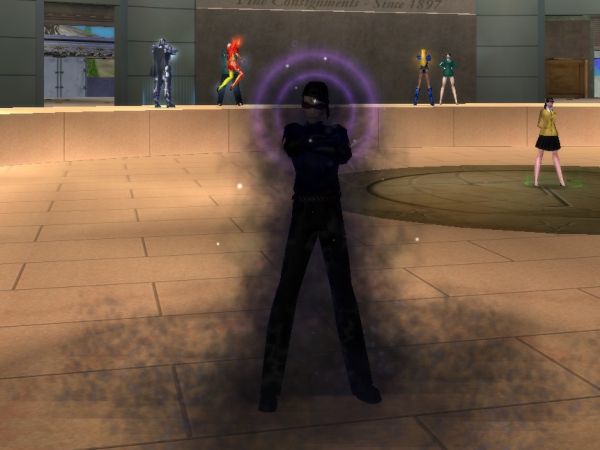Sometimes our hidden side can be dramatically different from what we believe about ourselves.
In order for human life to make sense, we have to acknowledge that we are not alone in our head. We are not made of the same stuff all the way through. There are parts of us that we do not fully know, and that may have plans or wants that run contrary to those we claim as our own.
Until a few generations ago, this other activity in our brain was generally attributed to angels or demons, or the blessings and curses of priests and witches. Â Today we use other expressions, and generally view them as all being “in your head”. Â Carl Gustav Jung coined the term “complex”, which is used today in a narrower meaning. But originally complexes meant all the stuff in our mind that is more complex than a simple thought or feeling. Â Even our internal representation of other people is in the form of a complex. All the characters in our dreams, whether they look like someone we know or not, are our complexes.
I put the word “subconscious” in quotes here, because it is not accurate. Â The hidden part of us could be both subconscious and supraconscious (“superego” in the misunderstood word of Freud), but often they are neither higher nor lower than our conscious self, but simply off to the side. Something that is conscious in me could be non-conscious in you, or even the other way around.
What I mean to point out is that you have an inner world, and it is big, and it is populated. Â It is not just a sack of forgotten memories. A lot of your thinking and feeling goes on outside the narrow scope of your awareness.
There are from time to time people who tell us that the subconscious is capable of amazing feats, and that it can be harnessed for personal success. This is often tied to the notion that we use only 10% or less of our brain. Â That is not actually true. Â Now that we are able to see living brains as they work, it is clear that we use a good deal of our brain at any time. However, it is correct that part of that activity is not under the control of our conscious self or ego. For instance, when we say something we know is not true, parts of the brain light up that are not active when we tell the truth as we see it. Â This activity is not something we can decide. Â It may be an “angelic” part of our subconscious that is active outside our control. Â In the same way, a man may be exposed to erotic stimuli and not react to them, but in his brain there is a flurry of activity. Â This is a less angelic part of his subconscious at work, again regardless of conscious choice.
I mention this because it is common among ordinary people to believe that they know what is going on in their head. They also believe that most of the activity in there is themselves, although they will sometimes admit that “I don’t know what came over me” or “I don’t know what possessed me”. But then they forget it again, or they come up with some theory that makes what they did seem rational. Â “It was his fault”, “it was because she was wearing a miniskirt”, “the road was full of idiots today”, “a snake told me to eat it”.
In reality, a whole lot of the thinking of ordinary people consists of attempts to explain to themselves what they already did or thought or felt. And not only to themselves. When people get together, they also try to pull each other into this kind of thinking, as if the agreement of other people mattered. Â (Usually it doesn’t, except in court.)
I want you to realize that the world we perceive is a mixture of the outer world and the inner world. Â The inner world reflects the outer world, but with changes made by our subconscious. We selectively forget, and change the color of memories over time, or even make them up. Your relationship with your subconscious matters a lot, because over time it shapes your world. “I think, therefore I am. But I remember, therefore I am me.”
This understanding is a great help toward humility, which is simply a subset of realism. Humility is realism about myself. Â So just for that reason, being aware of our “subconscious” is a great help. Â But this understanding is also necessary for some more advanced observation, which I hope to come back to at a later time.










